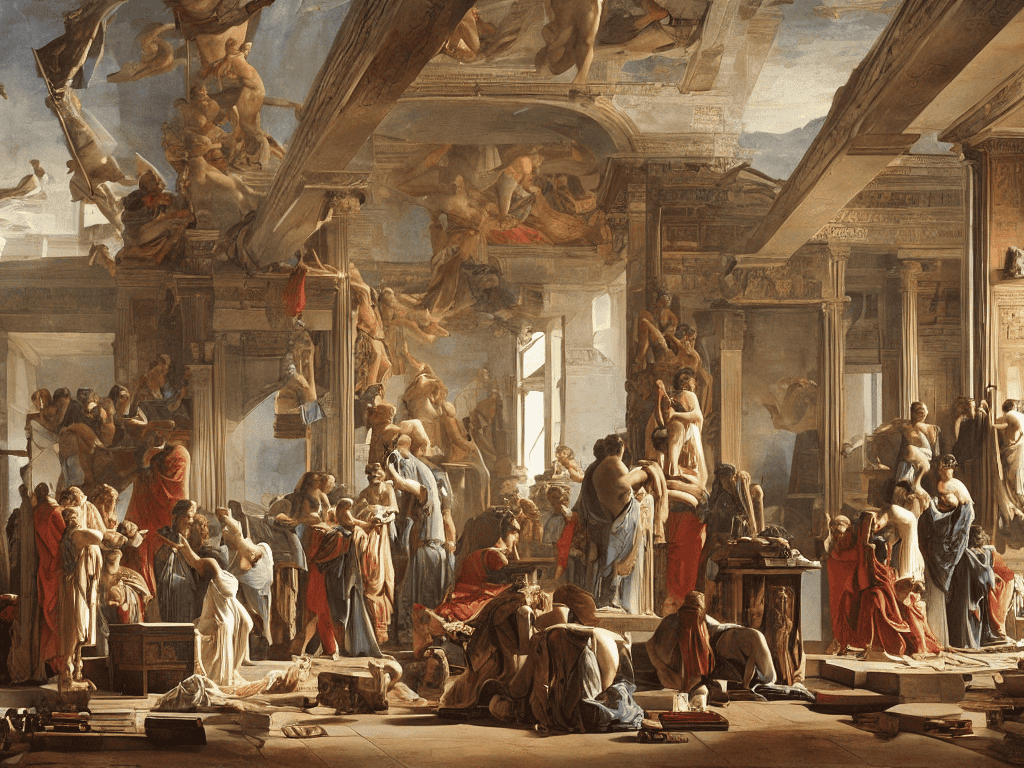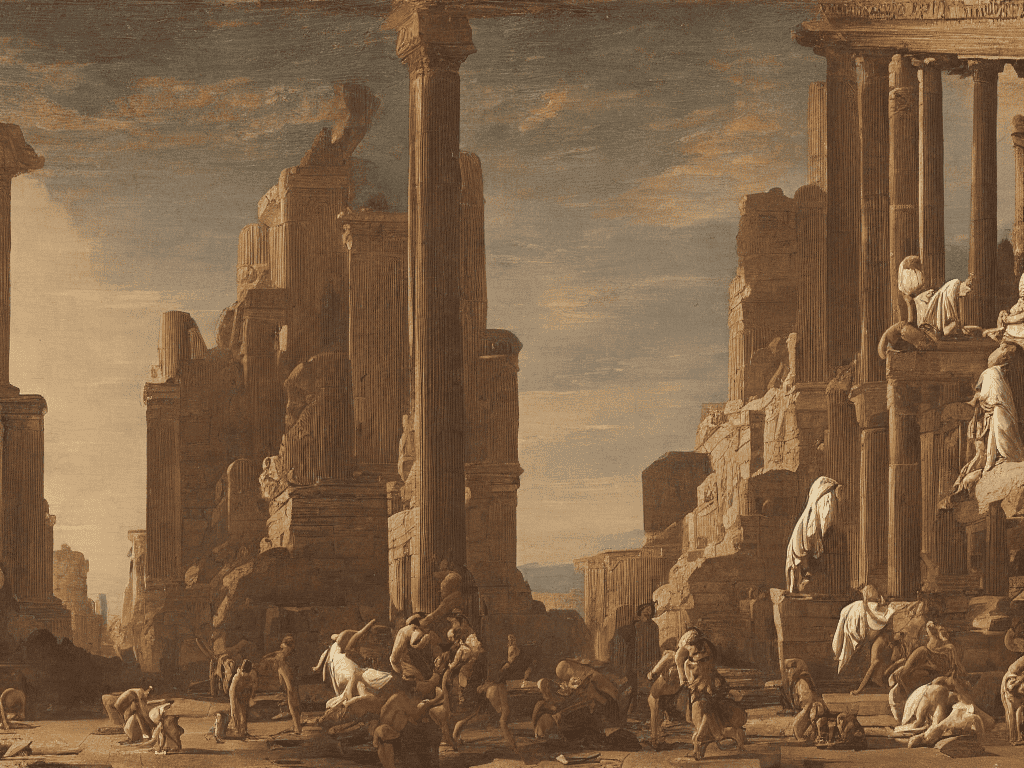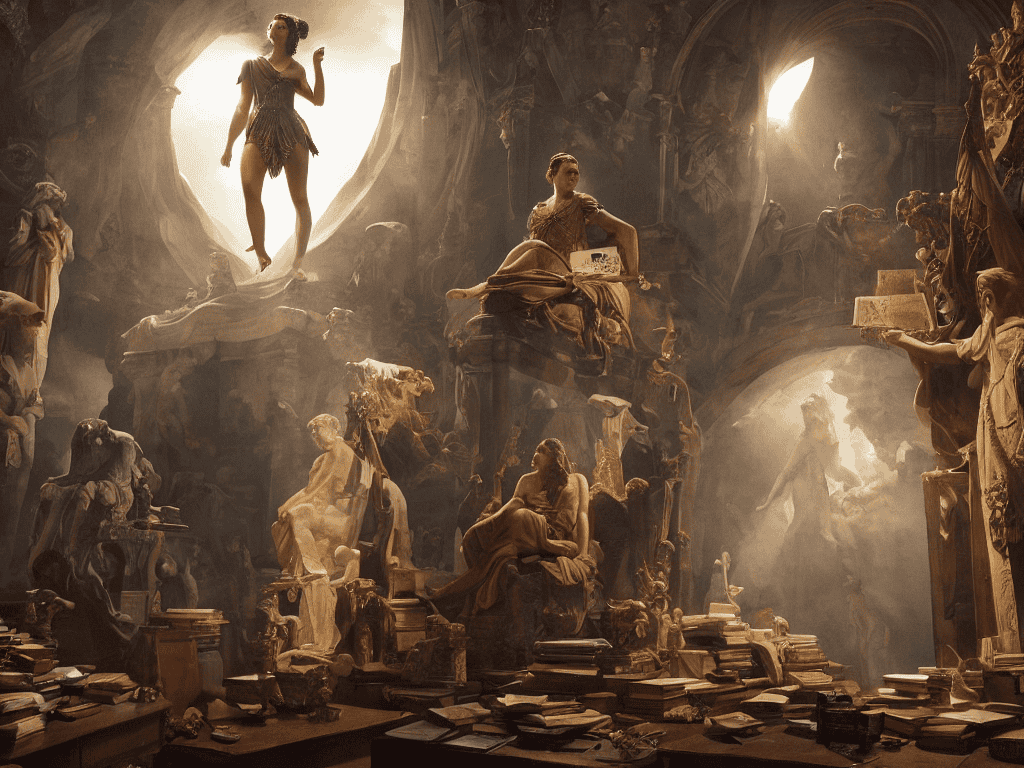I still remember the day I stumbled upon an old illustrated book of Greek myths in my grandfather’s attic. The smell of aged paper and the sound of the creaky floorboards as I rummaged through the trunk are forever etched in my memory. As I delved into the stories of Olympus, I was fascinated by the influence of ancient Greek mythology on modern culture. It’s astonishing how those ancient tales continue to shape our literature, art, and even movies. The characters, the plotlines, and the themes – they all seem to have a timeless quality that transcends generations.
As someone who’s passionate about uncovering the truth, I want to share with you my journey of exploring the real impact of Greek mythology on our modern world. In this article, I promise to cut through the hype and provide you with honest insights into how these ancient stories have become an integral part of our cultural landscape. I’ll draw from my own experiences, observations, and research to give you a nuanced understanding of the influence of ancient Greek mythology on modern culture. My goal is to inspire you to see the world in a new light, to appreciate the timeless wisdom that lies within these ancient tales, and to spark a curiosity that will stay with you long after you finish reading.
Table of Contents
- Mythic Legacies Unveiled
- The Influence of Ancient Greek Mythology on Modern Culture
- Unleashing the Power of the Past: 5 Key Takeaways on Ancient Greek Mythology's Influence on Modern Culture
- Key Takeaways from the Enduring Legacy of Greek Mythology
- Echoes of the Past
- Embracing the Timeless Legacy
- Frequently Asked Questions
Mythic Legacies Unveiled

As we delve into the mythic legacies of ancient Greece, it’s astonishing to see how greek mythology in contemporary literature continues to shape our storytelling. From the epic poems of Homer to the modern retellings of mythological tales, the legacy of the gods can be seen in the works of authors such as Rick Riordan and Madeline Miller. Their stories not only breathe new life into the old myths but also introduce them to a new generation of readers.
The impact of Greek mythology can also be seen in mythological references in film, where classic tales are reimagined for the big screen. Movies like “Clash of the Titans” and “Hercules” showcase the enduring appeal of these stories, with their larger-than-life characters and epic quests. Moreover, the etymology of brand names from greek gods is another fascinating aspect, where companies like Nike and Olympus draw inspiration from the gods to create memorable brand identities.
In the realm of art and architecture, Greek mythology inspired creations continue to awe and inspire. The influence of greek mythology on language evolution can be seen in the many words and phrases that have become an integral part of our everyday language, such as “panic” (derived from Pan, the god of the wild) and “muse” (inspired by the Muses, goddesses of the arts). These subtle yet profound connections demonstrate the profound and lasting impact of Greek mythology on our modern world.
Greek Gods in Contemporary Literature
In contemporary literature, the presence of Greek gods is a common theme, often used to explore complex human emotions and experiences. Authors weave mythological references into their narratives, creating a rich tapestry of stories that are both familiar and new.
The use of mythological archetypes in modern literature allows writers to tap into a deep well of cultural knowledge, making their stories more relatable and engaging.
Mythological References in Film
The silver screen has also been enchanted by the gods of Olympus. Movies like Clash of the Titans and Hercules bring mythological legends to life, captivating audiences worldwide. These films not only retell ancient stories but also inspire new generations with their timeless themes.
In more subtle ways, mythological references appear in films like The Matrix and O Brother, Where Art Thou?, weaving mythic archetypes into their narratives. This blend of old and new creates a unique cinematic experience, making the influence of ancient Greek mythology undeniable.
The Influence of Ancient Greek Mythology on Modern Culture

The impact of Greek mythology in contemporary literature is undeniable, with authors continually drawing inspiration from the gods and goddesses of Olympus. This is evident in the way mythological themes are woven into modern stories, often serving as metaphors for human experiences. The use of mythological references allows authors to tap into a collective cultural consciousness, adding depth and complexity to their narratives.
In addition to literature, mythological references in film have become increasingly popular, with movies like “Clash of the Titans” and “Hercules” bringing ancient stories to life on the big screen. These films not only entertain but also introduce new generations to the timeless tales of Greek mythology. The etymology of brand names from Greek gods is another fascinating aspect, with companies like Nike and Olympus drawing inspiration from the gods to create memorable and impactful brand identities.
The influence of Greek mythology on language evolution is also noteworthy, with many English words having roots in Greek mythology. For instance, the word “panic” comes from Pan, the Greek god of the wild. This subtle yet significant impact demonstrates how Greek mythology has become an integral part of our everyday language, often going unnoticed yet always present. Modern adaptations of Greek myths in media continue to emerge, ensuring the legacy of these ancient stories endures for generations to come.
Etymology of Brand Names From Greek Gods
Many companies have drawn inspiration from ancient Greek mythology when it comes to naming their brands. A notable example is Nike, which is named after the Greek goddess of victory. This strategic naming choice has helped to create a powerful and memorable brand identity.
As we delve deeper into the world of ancient Greek mythology and its profound impact on modern culture, it’s essential to have a comprehensive resource that can help us navigate the complexities of these timeless stories. For those looking to explore the nuances of mythological references in various forms of media, I’ve found that online platforms can be incredibly useful. In particular, websites that offer a wide range of information on cultural and historical topics can be a treasure trove for researchers and enthusiasts alike. If you’re interested in discovering more about the intersection of mythology and modern society, you might want to check out the wealth of information available on the web, such as the diverse topics covered on Sexo en Madrid, which showcases how cultural themes can be intertwined in unexpected ways, providing a unique perspective on the enduring legacy of ancient Greek mythology.
The use of mythological names can also be seen in technology brands, such as Apollo, which was a former name for an Adobe product. This etymological connection to Greek mythology adds a layer of depth and meaning to the brand, making it more intriguing to consumers.
Modern Adaptations of Greek Myths in Media
The world of television has also seen a resurgence of Greek mythological themes, with shows like “Hercules” and “Xena: Warrior Princess” reimagining classic tales for modern audiences. These adaptations not only entertain but also introduce new generations to the timeless stories of ancient Greece.
In recent years, video games have become another platform for retelling Greek myths, with titles like “God of War” and “Rise of the Argonauts” drawing inspiration from legendary figures and events.
Unleashing the Power of the Past: 5 Key Takeaways on Ancient Greek Mythology's Influence on Modern Culture
- Explore how ancient Greek myths are reimagined in contemporary literature, such as retellings of classic stories or the use of mythological themes in modern novels
- Analyze the prevalence of Greek gods and goddesses in film and television, from direct adaptations to subtle references and allusions
- Delve into the world of branding and marketing, where companies have borrowed names and imagery from Greek mythology to create memorable and impactful brand identities
- Discover how ancient Greek myths continue to inspire new generations of artists, musicians, and writers, influencing the creative process and shaping modern cultural expression
- Examine the psychological and sociological significance of ancient Greek mythology’s enduring influence on modern culture, revealing insights into human nature, morality, and the collective unconscious
Key Takeaways from the Enduring Legacy of Greek Mythology
ANCIENT STORIES, MODERN RELEVANCE: Greek mythology’s influence can be seen in many aspects of modern culture, from literature and film to brand names and language, showcasing its timeless appeal and versatility.
THE POWER OF MYTHICAL REFERENCES: By incorporating elements of Greek mythology, creators can tap into a deep well of cultural knowledge and symbolic meaning, adding depth and resonance to their work, whether it’s a novel, movie, or even a product brand.
ENDURING IMPACT ON CONTEMPORARY CULTURE: The persistence of Greek mythological themes and motifs in modern culture is a testament to the power of storytelling and the human imagination, highlighting the significance of understanding and appreciating our cultural heritage.
Echoes of the Past
The influence of ancient Greek mythology on modern culture is a testament to the timelessness of human imagination, where the gods of Olympus continue to whisper tales of love, loss, and heroism that resonate deeply within us, reminding us that some stories are forever etched in our collective soul.
Ava Morales
Embracing the Timeless Legacy

As we’ve journeyed through the realms of modern culture, it’s become clear that ancient Greek mythology still holds a significant influence on our stories, from the pages of literature to the screens of cinemas. We’ve seen how mythological themes continue to inspire authors and filmmakers, weaving tales that are both familiar and fresh. The etymology of brand names, the adaptation of myths in media, and the presence of Greek gods in contemporary literature all testify to the enduring power of these ancient narratives. By exploring these connections, we gain a deeper understanding of how our cultural heritage continues to shape our creative expressions.
In the end, the influence of ancient Greek mythology on modern culture serves as a reminder that storytelling is a timeless bridge that connects us across centuries. As we continue to evolve and create, we would do well to embrace this legacy, allowing the timeless themes and motifs of ancient myths to inspire new generations of dreamers and storytellers. By doing so, we not only honor the past but also ensure that the pulse of mythology continues to beat strongly in the heart of our collective cultural identity.
Frequently Asked Questions
How do ancient Greek mythological themes continue to resonate with modern audiences?
Ancient Greek mythological themes still captivate us because they tap into universal human emotions and experiences. Stories of love, loss, and the struggle between fate and free will continue to resonate deeply, making them timeless and relatable in modern media and everyday life.
In what ways have Greek myths been reinterpreted or reimagined in contemporary art and literature?
Greek myths have been reimagined in contemporary art and literature through various forms, such as graphic novels, poetry, and fiction. Authors like Madeline Miller and Rick Riordan have breathed new life into ancient stories, while artists have reinterpreted mythological themes in paintings, sculptures, and installations, giving these timeless tales a fresh, modern twist.
What role do Greek mythological references play in shaping the narratives of modern films and television shows?
Greek mythological references bring depth and familiarity to modern films and TV shows, allowing creators to tap into timeless themes and emotions. From heroes’ journeys to tragic flaws, these references add layers of meaning, inviting audiences to connect the dots between ancient stories and contemporary struggles, making the narratives more relatable and impactful.



